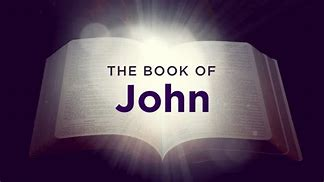Jesus Washes the Disciples’ Feet - {Interlinear <Greek>}
13:1 - Now {δὲ<de>} before {Πρὸ<pro>} the {τῆς<ho>} Feast {ἑορτῆς<heortē>} of → the {τοῦ<ho>} Passover, {πάσχα<pascha>} when → Jesus {ὁ Ἰησοῦς<ho Iēsous>} knew {εἰδὼς<oida>} that {ὅτι<hoti>} his {αὐτοῦ<autos>} hour {ἡ ὥρα<ho hōra>} had → come {ἦλθεν<erchomai>} to {ἵνα<hina>} depart {μεταβῇ<metabainō>} out of {ἐκ <ek>} this {τούτου<houtos>} world {τοῦ κόσμου<ho kosmos>} to {πρὸς<pros>} the {τὸν<ho>} Father, {πατέρα,<patēr>} having → loved {ἀγαπήσας<agapaō>} his → own {τοὺς ἰδίους<ho idios>} who {τοὺς<ho>} were • in {ἐν<en>} the {τῷ<ho>} world, {κόσμῳ<kosmos>} he → loved {ἠγάπησεν<agapaō>} them {αὐτούς.<autos>} to {εἰς<eis>} the → end. {τέλος<telos>}
13:2 - • {καὶ<kai>} During supper, {δείπνου γινομένου,<deipnon ginomai>} when → the {τοῦ<ho>} devil {διαβόλου<diabolos>} had → already {ἤδη<ēdē>} put {βεβληκότος <ballō>} it • into {εἰς<eis>} the {τὴν<ho>} heart {καρδίαν<kardia>} of • Judas {Ἰούδας<Ioudas>} Iscariot, {Ἰσκαριώτης,<Iskariōtēs>} Simon’s {Σίμωνος <Simōn>} son, • to {ἵνα<hina>} betray {παραδοῖ<paradidōmi>} him, {αὐτὸν<autos>}
13:3 - Jesus, {ὁ Ἰησοῦς<ho Iēsous>} knowing {εἰδὼς<oida>} that {ὅτι<hoti>} the {ὁ <ho>} Father {πατὴρ<patēr>} had → given {δέδωκεν<didōmi>} all {πάντα<pas>} things ← into {εἰς<eis>} his {αὐτῷ<autos> hands, {τὰς χεῖρας,<ho cheir>} and {καὶ <kai>} that {ὅτι<hoti>} he → had → come {ἐξῆλθεν<exerchomai>} from {ἀπὸ<apo>} God {θεοῦ<theos>} and {καὶ <kai>} was going back {ὑπάγει,<hypagō>} to {πρὸς <pros>} God, {τὸν θεὸν<ho theos>}
13:4 - rose {ἐγείρεται<egeirō>} from {ἐκ<ek>} supper. {τοῦ δείπνου<ho deipnon>} • {καὶ<kai>} He → laid {τίθησιν<tithēmi>} aside ← his • outer → garments, {τὰ ἱμάτια,<ho himation>} and {καὶ<kai>} taking {λαβὼν<lambanō>} a → towel, {λέντιον <lention>} tied → it • around {διέζωσεν<diazōnnymi>} his {ἑαυτόν.<heautou>} waist. •
13:5 - Then {εἶτα<eita>} he → poured {βάλλει<ballō>} water {ὕδωρ<hydōr>} into {εἰς<eis>} a → basin {τὸν νιπτῆρα<ho niptēr>} and {καὶ<kai>} began {ἤρξατο<archō>} to → wash {νίπτειν<niptō>} the {τῶν<ho>} disciples’ {μαθητῶν<mathētēs>} feet {τοὺς πόδας<ho pous>} and {καὶ<kai>} to → wipe {ἐκμάσσειν<ekmassō>} them • with → the {τῷ<ho>} towel {λεντίῳ<lention>} that {ᾧ<hos>} was {ἦν<eimi>} wrapped around him. {διεζωσμένος. <diazōnnymi>}
13:6 - He → came {Ἔρχεται<erchomai>} • {οὖν<oun>} to {πρὸς<pros>} Simon {Σίμωνα <Simōn>} Peter, {Πέτρον·<Petros>} who {ἐκεῖνος·<ekeinos>} said {λέγει <legō>} to → him, {αὐτῷ<autos>} “Lord, {κύριε,<kyrios>} do → you {σύ<sy>} wash {νίπτεις<niptō>} my {μου <egō>} feet?” {τοὺς πόδας;<ho pous>}
13:7 - Jesus {Ἰησοῦς<Iēsous>} answered {ἀπεκρίθη<pokrinomai>} • {καὶ<kai>} • {εἶπεν <legō>} him, {αὐτῷ·<autos>} “What {ὃ<hos>} I {ἐγὼ<egō>} am → doing {ποιῶ,<poieō>} you {σὺ<sy>} do → not {οὐκ<ou>} understand {οἶδας<oida>} now, {ἄρτι,<arti>} but {δὲ<de>} afterward {μετὰ ταῦτα.<meta houtos>} you → will → understand.” {γνώσῃ <ginōskō>}
13:8 - Peter {Πέτρος·<Petros>} said {λέγει<legō>} to → him, {αὐτῷ<autos>} “You → shall → never {οὐ μὴ εἰς τὸν αἰῶνα.<ou mē eis ho aiōn>} wash {νίψῃς<niptō>} my {μου <egō>} feet.” {τοὺς πόδας<ho pous>} Jesus {Ἰησοῦς<Iēsous>} answered {Ἀπεκρίθη <apokrinomai>} him, {αὐτῷ·<autos>} “If {ἐὰν<ean>} I → do → not {μὴ <mē>} wash {νίψω<niptō>} you, {σε, <sy>} you → have {ἔχεις<echō>} no {οὐκ <ou>} share {μέρος<meros>} with {μετ᾽<meta>} me.” {ἐμοῦ.<egō>}
13:9 - Simon {Σίμων<Simōn>} Peter {Πέτρος·<Petros>} said {λέγει<legō>} to → him, {αὐτῷ <autos>} “Lord, {κύριε,<kyrios>} not {μὴ<mē>} my {μου<egō>} feet {τοὺς πόδας <ho pous>} only {μόνον<monos>} but {ἀλλὰ<alla>} also {καὶ<kai>} my • hands {τὰς χεῖρας <ho cheir>} and {καὶ<kai>} my • head!” {τὴν κεφαλήν. <ho kephalē>}
3:10 - Jesus {ὁ Ἰησοῦς·<ho Iēsous>} said {Λέγει<legō>} to → him, {αὐτῷ <autos>} “The one who {ὁ<ho>} has → bathed {λελουμένος<louō>} does → not {οὐκ <ou>} need {ἔχει χρείαν<echō chreia>} to → wash, {νίψασθαι,<niptō>} except for {εἰ μὴ<ei mē>} his • feet, {τοὺς πόδας<ho pous>} but {ἀλλ᾽<alla>} is {ἔστιν<eimi>} completely {ὅλος·<holos>} clean. {καθαρὸς <katharos>} And {καὶ< kai>} you {ὑμεῖς<sy>} are {ἐστε<eimi>} clean, {καθαροί<katharos>} but {ἀλλ᾽<alla>} not {οὐχὶ <ouchi>} every {πάντες.<pas>} one ← of ← you.” ←
3:11 - For {γὰρ<gar>} he → knew {ᾔδει<oida>} who {τὸν<ho>} was → to → betray {παραδιδόντα<paradidōmi>} him; {αὐτόν·<autos>} that was why {διὰ τοῦτο<dia houtos>} he → said, {εἶπεν<legō>} “ {ὅτι <hoti>} Not {οὐχὶ<ouchi>} all {πάντες<pas>} of ← you ← are {ἐστε. <eimi>} clean.” {καθαροί<katharos>}

As Jesus prepares the disciples for the crucible of his death and the pain of his departure, what will they need? The same thing every generation of disciples need: not a pep talk, but a deeper understanding and experience of the gospel.
Jesus loved these men “to the end” (v. 1)—that is, to the completion of his work as the last Adam (1 Cor. 15:45–49); “to the end” that God will be glorified in the redemption of ill-deserving sinners; “to the end”—to the fullest extent. No one loves us like Jesus, and nothing will ever separate us from his love (Rom. 8:31–39). And his compelling love propels us into faithful service (2 Cor. 5:14).
The water and towel, with which Jesus humbly washed the disciples’ feet, clearly anticipate the humiliation of his cross and blood, by which he would wash their hearts. Peter’s adamant refusal (literally “never to eternity”; John 13:8) demonstrates our innate resistance to God’s grace. Peter wasn’t being noble; he was being foolish, even self-destructive. Unless we submit to the criticism of our uncleanness indicated by our need of the washing of Christ’s blood shed on the cross, we have no life in Jesus. Jesus is always more ready to meet us at the throne of grace than we are willing to meet him there.
References:
All contents are reposted from ESV.org.
“Scripture quotations are from The ESV® Bible (The Holy Bible, English Standard Version®), copyright © 2001 by Crossway, a publishing ministry of Good News Publishers. Used by permission.
All rights reserved.”
Comments